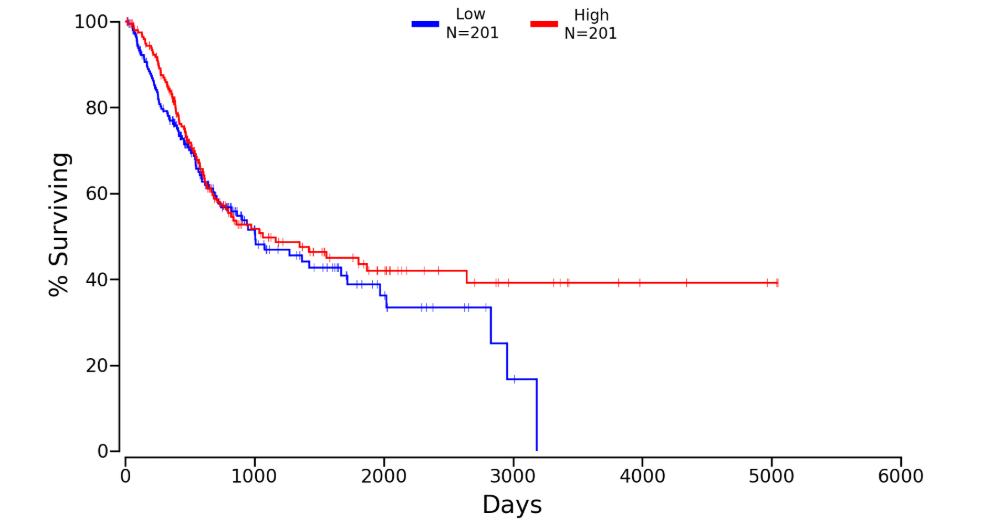LCK
Entrez ID: 3932
Full name: LCK proto-oncogene, Src family tyrosine kinase
External links: HGNC UniprotKB Ensembl RefSeq COSMIC
Family: TK: Src: SrcB
Chromosomal location: 1p35.2
Substructure location: Gatekeeper: 316 A-loop: 381...390, 392...405 G-loop: 252...259 αC-helix: 282...294
Please click HERE
for better display.
LCK
Non-receptor tyrosine-protein kinase that plays an essential role in the selection and maturation of developing T-cells in the thymus and in the function of mature T-cells. Plays a key role in T-cell antigen receptor (TCR)-linked signal transduction pathways. Constitutively associated with the cytop...
Non-receptor tyrosine-protein kinase that plays an essential role in the selection and maturation of developing T-cells in the thymus and in the function of mature T-cells. Plays a key role in T-cell antigen receptor (TCR)-linked signal transduction pathways. Constitutively associated with the cytoplasmic portions of the CD4 and CD8 surface receptors. Association of the TCR with a peptide antigen-bound MHC complex facilitates the interaction of CD4 and CD8 with MHC class II and class I molecules, respectively, thereby recruiting the associated LCK protein to the vicinity of the TCR/CD3 complex. LCK then phosphorylates tyrosine residues within the immunoreceptor tyrosine-based activation motifs (ITAM) of the cytoplasmic tails of the TCR-gamma chains and CD3 subunits, initiating the TCR/CD3 signaling pathway. Once stimulated, the TCR recruits the tyrosine kinase ZAP70, that becomes phosphorylated and activated by LCK. Following this, a large number of signaling molecules are recruited, ultimately leading to lymphokine production. LCK also contributes to signaling by other receptor molecules. Associates directly with the cytoplasmic tail of CD2, which leads to hyperphosphorylation and activation of LCK. Also plays a role in the IL2 receptor-linked signaling pathway that controls the T-cell proliferative response. Binding of IL2 to its receptor results in increased activity of LCK. Is expressed at all stages of thymocyte development and is required for the regulation of maturation events that are governed by both pre-TCR and mature alpha beta TCR. Phosphorylates other substrates including RUNX3, PTK2B/PYK2, the microtubule-associated protein MAPT, RHOH or TYROBP. Interacts with FYB2 (PubMed:27335501).
View more >>
GO - Biological processes (BP):
activation of cysteine-type endopeptidase activity involved in apoptotic process, B cell receptor signaling pathway, cell differentiation, cellular zinc ion homeostasis, hemopoiesis, leukocyte migration, peptidyl-tyrosine autophosphorylation, peptidyl-tyrosine phosphorylation, platelet activation, p...
activation of cysteine-type endopeptidase activity involved in apoptotic process, B cell receptor signaling pathway, cell differentiation, cellular zinc ion homeostasis, hemopoiesis, leukocyte migration, peptidyl-tyrosine autophosphorylation, peptidyl-tyrosine phosphorylation, platelet activation, positive regulation of heterotypic cell-cell adhesion, positive regulation of intrinsic apoptotic signaling pathway, positive regulation of leukocyte cell-cell adhesion, positive regulation of protein kinase B signaling, positive regulation of T cell activation, positive regulation of T cell receptor signaling pathway, protein phosphorylation, regulation of cell population proliferation, regulation of defense response to virus by virus, regulation of lymphocyte activation, release of sequestered calcium ion into cytosol, response to drug, T cell costimulation, T cell differentiation, T cell receptor signaling pathway, transmembrane receptor protein tyrosine kinase signaling pathway
View more >>
GO - Molecular function (MF):
ATPase binding, ATP binding, CD4 receptor binding, CD8 receptor binding, identical protein binding, non-membrane spanning protein tyrosine kinase activity, phosphatidylinositol 3-kinase binding, phosphotyrosine residue binding, protein C-terminus binding, protein kinase binding, protein phosphatase ...
ATPase binding, ATP binding, CD4 receptor binding, CD8 receptor binding, identical protein binding, non-membrane spanning protein tyrosine kinase activity, phosphatidylinositol 3-kinase binding, phosphotyrosine residue binding, protein C-terminus binding, protein kinase binding, protein phosphatase binding, protein serine/threonine phosphatase activity, protein tyrosine kinase activity, SH2 domain binding, signaling receptor binding, T cell receptor binding
View more >>
GO - Cellular component (CC):
pericentriolar material, cytosol, extracellular exosome, extrinsic component of cytoplasmic side of plasma membrane, immunological synapse, plasma membrane, cell, membrane raft...
pericentriolar material, cytosol, extracellular exosome, extrinsic component of cytoplasmic side of plasma membrane, immunological synapse, plasma membrane, cell, membrane raft
View more >>
LCK proto-oncogene, Src family tyrosine kinase
Control panel
Show dataset:
Show substructure:
All sites
Gatekeeper
A-loop
G-loop
αC-helix
Gatekeeper
A-loop
G-loop
αC-helix
Filter mutation sites
All sites
Minimum 5 samples
Minimum 10 samples
Minimum 5 samples
Minimum 10 samples
Data table is loading....
Kaplan plot for LCK in

Download patient group data (Lower:Upper = 50%:50%)
*NOTE: the Kaplan plots were collected from OncoLnc